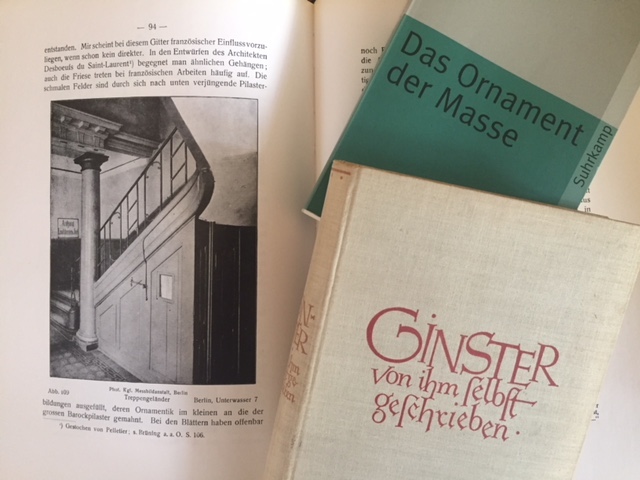Sommersemester 2020
Mittwoch 16:00-18:00
• Goethe University Frankfurt am Main | Art History Department
Seminar
SIEGFRIED KRACAUER AND MODERN ARCHITECTURAL CRITICISM
Prof. Dr. Carsten Ruhl
SIEGFRIED KRACAUER AND MODERN ARCHITECTURAL CRITICISM
Kracauer’s writings are well known in media studies and sociology. Less known is the fact that he was a trained architect. He studied architecture in Darmstadt, Berlin and Munich and practised as an architect during World War I. In 1915 he published his dissertation thesis on „Die Entwicklung der Schmiedekunst in Berlin, Potsdam und einigen Städten der Mark vom 17. Jahrhundert bis zum Beginn des 19. Jahrhunderts “(The development of blacksmithing in Berlin, Potsdam and some cities in the Mark from the 17th century to the beginning of the 19th century). This study betrays Kracauer’s interest into a meticulous analysis of ornamental and constructive details and its socioeconomic conditions. After the war Kracauer became a journalist of the Frankfurter Zeitung being still interested in architectural phenonema. He frequently published reviews focusing contemporary tendencies in modern architecture. Some of these articles remained unpublished after their first appearance in the Frankfurter Zeitung and are kept in the German Literature Archive in Marbach. In his autobiographical novel „Ginster, von ihm selbst geschrieben“ (Ginster, written by himself) published in 1928 Kracauer largely reflected on his experience as an architect and more generally on the modern architect’s subjectivity. And even with his writings on the critical status of the ornament Kracauer continued a debate substantial for the understanding of architectural discourse since the Renaissance.
Departing from a number of texts penned by Kracauer between 1915 and 1930 the seminar seeks to explore the nature of modern architectural criticism. How did architectural criticism evolved in history? Why did it become an important key to the analysis of socioeconomic conditions? How could we link this to the historical construction of the architect’s subjectivity since its heroic evocation in biographical texts like Vasari’s notorious „Vite“? And finally what is the current nature of architectural criticism?
Participants are expected to give a paper on one of the seminar’s topics, either in English or German. By the end of the semester an extended version of the paper has to be submitted. Furthermore, please note that the Institute for Social Research in Frankfurt is going to organize an international conference on Kracauer by the end of May. The event’s focus is on the impact Kracauer’s thinking had on disciplines like architecture, literature and film. Attendance of this event is mandatory for the participants of this seminar.
